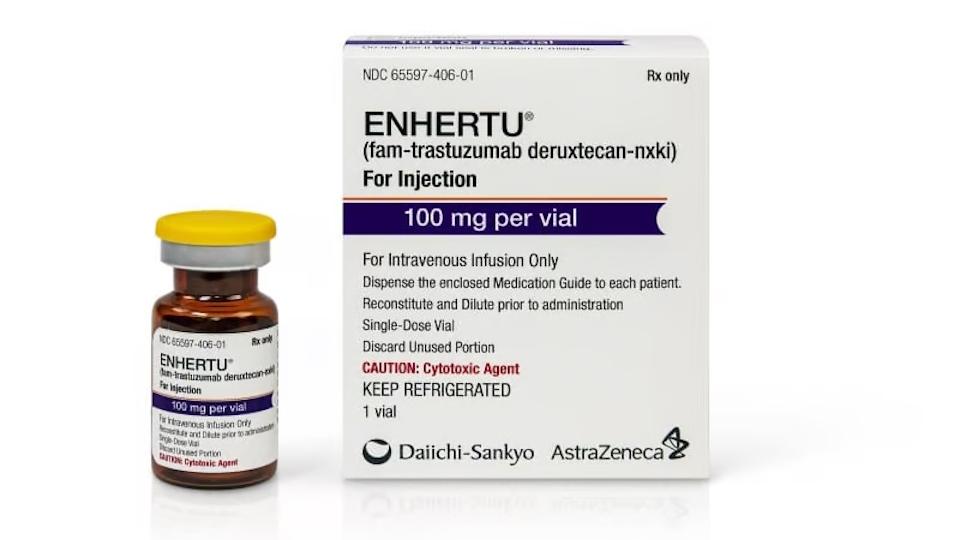Enhertu gets first okay for HER2-ultralow breast cancer

AstraZeneca and Daiichi Sankyo have claimed their seventh FDA approval for Enhertu, getting the go-ahead for the blockbuster drug as a second-line treatment for patients with HER2-low and HER2-ultralow metastatic breast cancer.
It brings the anti-HER2 antibody-drug conjugate (ADC) earlier in the treatment pathway for patients with HR-positive tumours, making it an option after one or more endocrine therapies have failed, and means that it can also be used in people with even lower levels of the HER2 biomarker.
Specifically, Enhertu (trastuzumab deruxtecan) has been cleared to treat HR-positive, HER2-low metastatic breast cancer – an immunohistochemistry (IHC) score of 1+ or 2+ or negative for in situ hybridisation (ISH) – as well as HER2-ultralow (IHC score of 0), in both cases when the disease has progressed after endocrine therapy.
That moves the drug up the treatment schedule ahead of chemotherapy, which would typically be used at this stage.
The approval is based on the results of the DESTINY-Breast06 trial, one of the highlights of last year's ASCO congress, which showed a response rate of over 60% with Enhertu and a 38% improvement in progression-free survival (PFS) compared to chemotherapy, and comes after a priority review by the FDA.
Enhertu achieved a median PFS that extended beyond a year, with a benefit that was seen in both HER2-low and HER2-ultra-low patients, although much larger in the former.
That has prompted the trial investigators to suggest that Enhertu could become a new standard of care for patients with HER2-low- and HER2-ultra-low-expressing tumours following endocrine therapy in the metastatic setting.
Enhertu is already approved for patients with HR+, HER2-low breast cancer after endocrine therapy based on the DESTINY-Breast04 trial data, but adding the DESTINY-Breast06 data to the label – and including the ultra-low group – could make the ADC an option for 90% or more of patients, according to estimates.
Offsetting the increased efficacy is a risk of severe side effects, including interstitial lung disease (ILD), that may be more significant than is typically seen with chemo and could have an impact on take-up under the new, expanded label in the US.
Enhertu is already a blockbuster, with worldwide sales of more than $2.7 billion in the first nine months of 2024 up from $1.8 billion in the same period of the prior year, and the new approval has the potential to unlock further growth.
The DESTINY-Breast06 data is also under review by regulators in Europe, Japan, and elsewhere with further decision expected in 2025.
AZ's head of oncology and haematology, Dave Fredrickson, said the approval "highlights the importance of testing metastatic breast cancer tumours for detectable staining with a standard IHC test to identify those who may be eligible for treatment with Enhertu following endocrine therapy."












